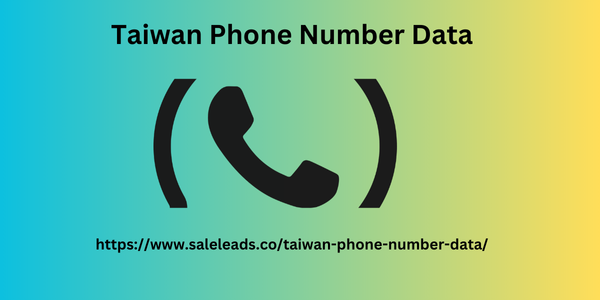|
|
In Taiwan, the phone number plays an important role in identity verification processes in various fields, such as banking, telecommunications, and online services. This reliance on mobile numbers is largely due to the widespread use of smartphones and the need for secure, efficient verification methods. Here's a look at how phone numbers feature in identity verification in Taiwan.
1. Two-Factor Authentication (2FA)
These phone numbers in verification of identities find their prominent usage in a factor of two-step authentications, mostly called 2FA. Online facilities such as online banking or e-commerce Web sites insist upon end-user verification via some other than password-second one-time use code. Naturally, by all means, accounts get guarded in their way, from unauthorized intrusion with some other protective wall. Even when the password gets divulged, at least in most conditions, one must pass the added layer for final accessibility.
2. Account Registration and Recovery
When one signs up for a service, a valid phone number is Taiwan Phone Number Data usually required. It acts like a unique identifier that connects to the account of the user. In events where one forgets their password or needs to recover their account, a verification code is sent to the registered phone number, allowing them to regain access securely. This process indicates how important it is to have a phone number that is actively monitored.
3. Verification in Financial Transactions
Phone numbers are also imperative in aspects of financial transaction verification processes. Banks and other financial institutions use mobile phone numbers in Taiwan to authenticate their customer's identities while transacting, which includes fund transfers and online payment. Confirmation codes could be then sent to the registered telephone number in order for these banks and institutes to verify that the transaction comes from a valid account owner.

4. Regulatory Compliance
In Taiwan, regulations such as the Personal Data Protection Act mandate that organizations implement secure methods for identity verification and data protection. By using phone numbers as part of these processes, companies can enhance security measures while complying with legal requirements.
5. Challenges and Considerations
However, with advantages come the challenges of relying on phone numbers for identity verification. Number portability, SIM card theft, and the use of fake or temporary numbers can undermine the effectiveness of this system. Because of this, organizations are constantly looking for more robust ways of verification through biometrics and digital identity solutions.
Conclusion
In a nutshell, phone numbers are indispensable in identity verification in Taiwan, offering a secure channel of authentication in many fields. Applications include two-factor authentication, account recovery, and financial transactions, enhancing security while remaining compliant with regulatory standards. However, ongoing challenges require the exploration of additional verification methods to ensure the integrity of identity processes.
|
|